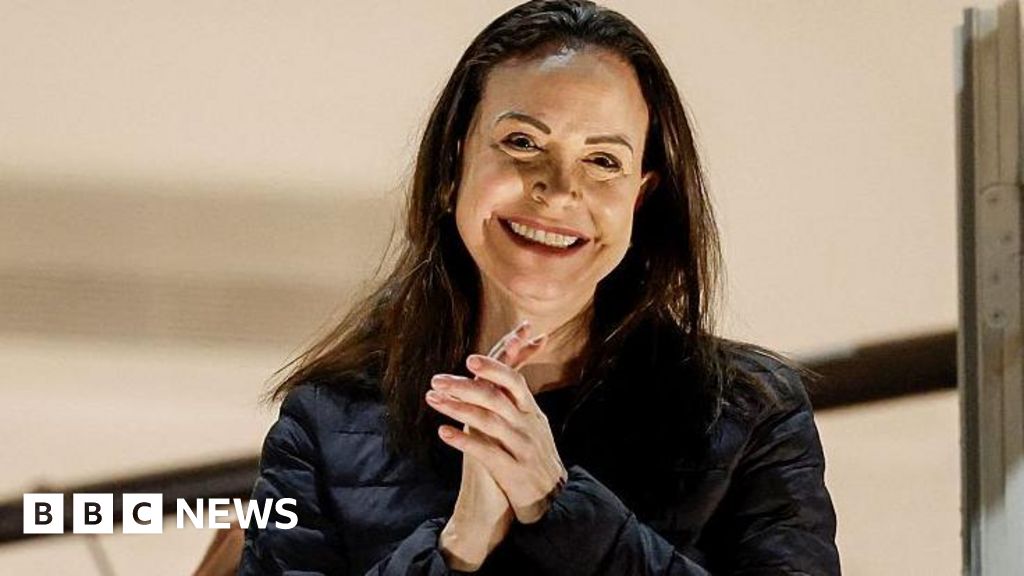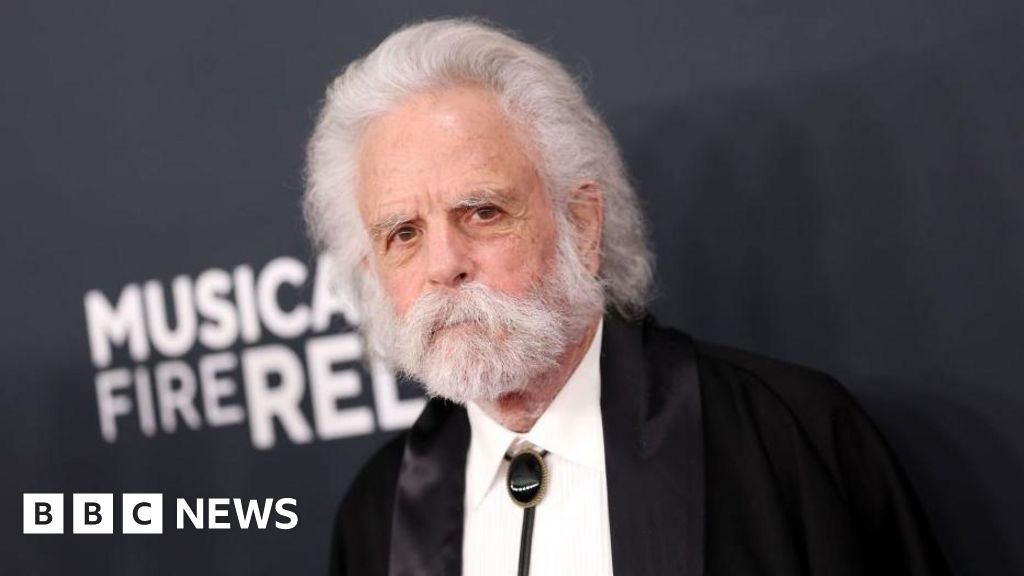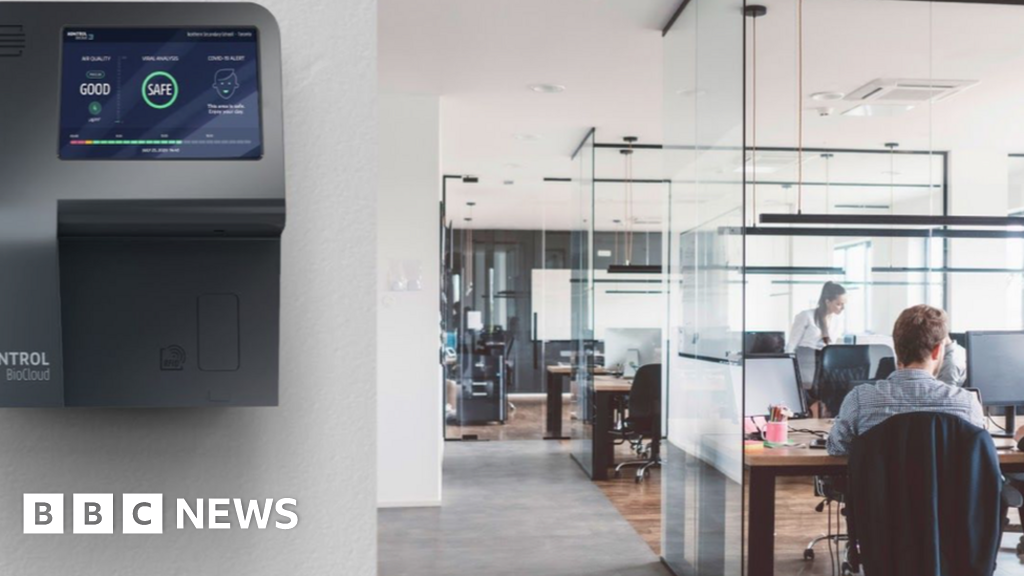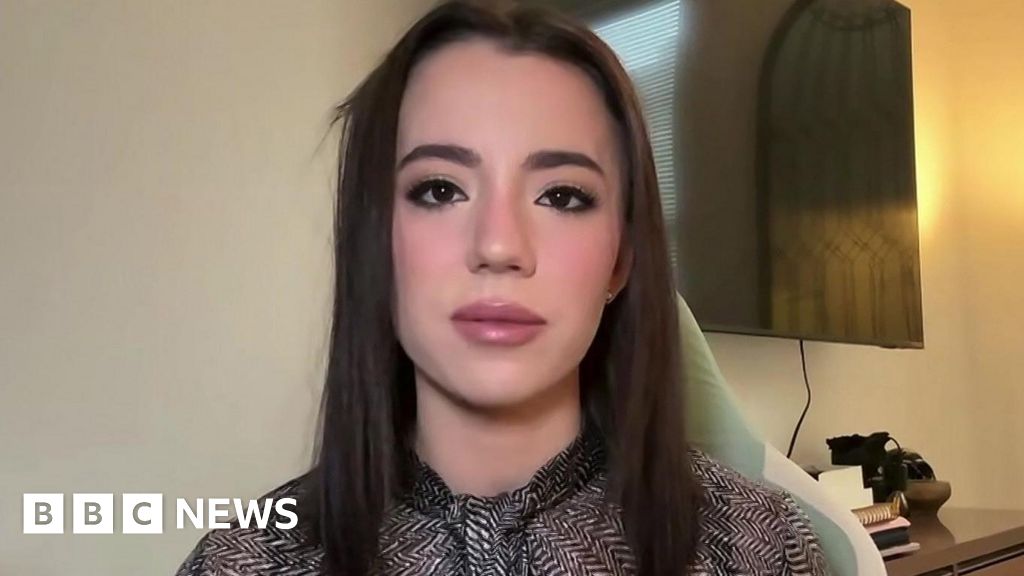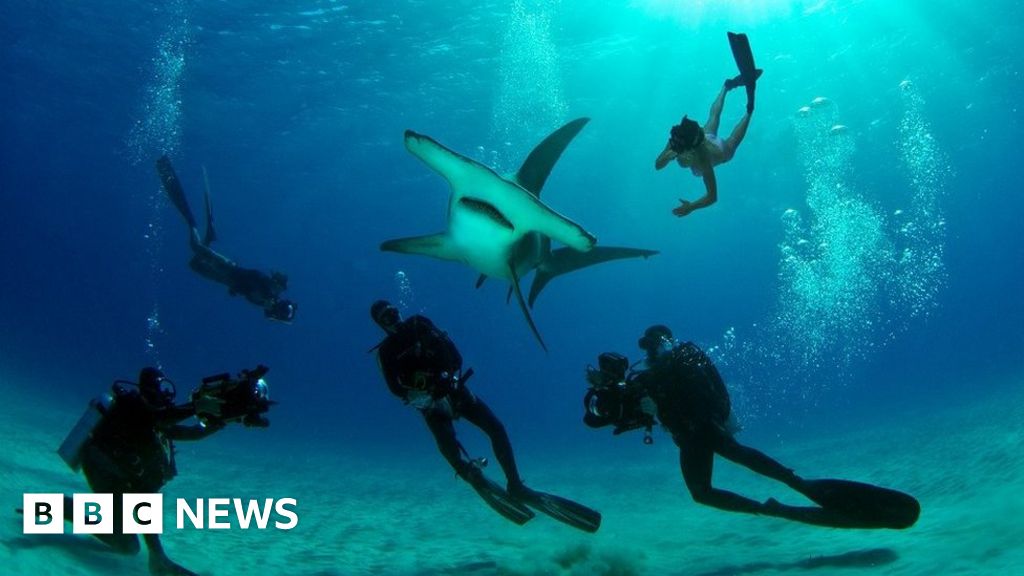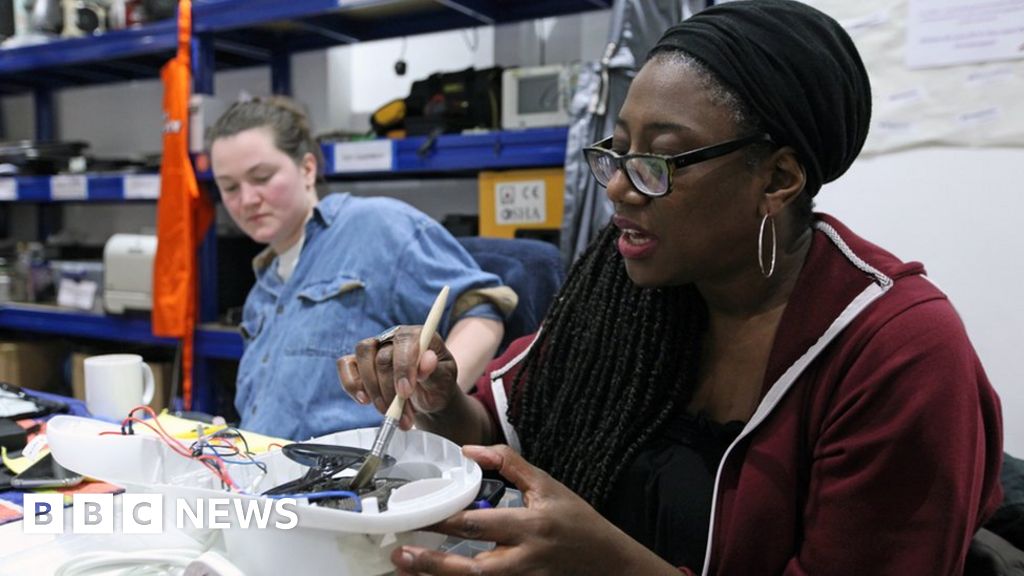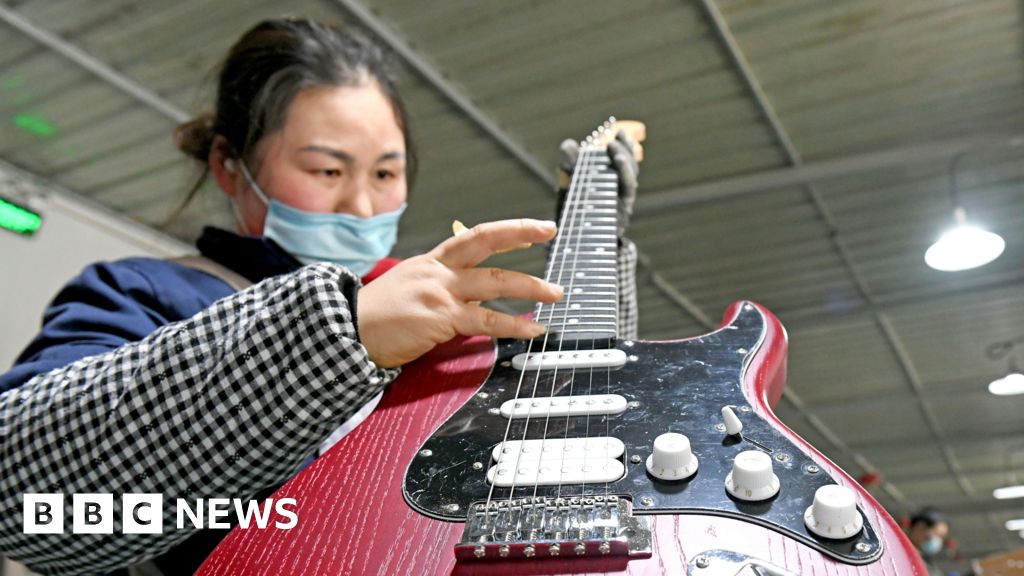image copyrightKontrol Energy
A Canadian company has developed a wall-mounted device it claims can detect the presence of coronavirus in the air, and send an alert.
Kontrol Energy hopes its BioCloud devices could be used in hospitals, transport systems and schools – but has no orders as yet.
One expert, who independently tested the system, said he believed it worked.
But another told the BBC it would need many more tests before he was convinced of its efficacy.
The device analyses air quality, samples of which are sent to a detection chamber that can be set up for Covid-specific testing. According to the firm, the devices use “three independent capture techniques” that allow for virus sampling, but it does not explain what these are.
The firm said it had received interest in the device from “around the globe”.
“There is a critical need for technology that can provide us with assurances that the workplaces, schools, healthcare environments and other spaces we physically occupy are safe and free of infectious disease,” said Paul Ghezzi, chief executive of Kontrol.
- YOUR QUESTIONS:
- THE R NUMBER: What it means and why it matters
- LOCAL LOCKDOWNS: What happens if you have one?
- TEST AND TRACE: How does it work?
- FURLOUGH: What happens when the scheme ends?
Sceptical
Dr David Heinrichs, professor of microbiology and immunology at Western University in Ontario, said his lab had tested the device.
“There’s no doubt in my mind that this technology can quickly and effectively detect an array of airborne pathogens, including the virus that causes Covid-19,” he said.
But Prof Alan McNally from Birmingham University was not convinced.
“I think this is just another test being marketed with absolutely no robust, independent validation and testing, and I would say I am extremely sceptical on its use.”
He said that it would need “an incredible amount of independent testing”.
He also said it was unclear what the procedure for schools and businesses would be if the alarm sounded: “How exactly one would act if Covid in the air was detected is rather beyond me.”
Kontrol said it would be up to the administrator of the device to decide how to proceed, but it would allow “outbreaks to be contained”.
The firm received a $50,000 (£38,000) grant from the National Research Council of Canada to develop its BioCloud device.
Each unit will cost an estimated $12,000 and the firm hopes to be able to manufacture up to 20,000 per month.






